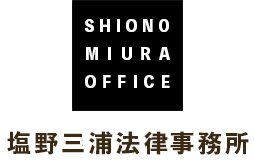Best Debt & Collection Lawyers in Osaka
Share your needs with us, get contacted by law firms.
Free. Takes 2 min.
List of the best lawyers in Osaka, Japan
About Debt & Collection Law in Osaka, Japan
Debt and collection law in Osaka, Japan is part of the wider civil and commercial legal framework that regulates how debts are owed, paid, and collected. Like the rest of Japan, Osaka has strict rules governing how lenders and collectors must interact with debtors to ensure fair treatment. The law defines the rights and obligations of both parties and provides processes for resolving disputes, enforcing judgments, and protecting consumers. Whether the debt arises from loans, goods, services, or unpaid bills, local and national laws ensure a balance between creditors seeking collection and the protection of debtor rights.
Why You May Need a Lawyer
There are many situations in which seeking legal advice or representation in debt and collection matters becomes necessary. You may need a lawyer if you are:
- Owed money by an individual or business and struggling to collect payment
- Facing aggressive collection tactics or harassment from creditors or agencies
- Uncertain about your rights regarding a demand letter or repayment plan
- Considering legal action to recover a debt or defend against a claim
- Having property or assets seized to satisfy a debt judgment
- Negotiating a settlement or restructuring outstanding debts
- Concerned about potential bankruptcy or insolvency proceedings
Legal professionals can help you understand your options, negotiate fair outcomes, and ensure compliance with all laws and regulations throughout the process.
Local Laws Overview
Debt collection in Osaka is governed by Japan’s Civil Code, Civil Execution Act, and specific local ordinances. Some key points include:
- Statute of Limitations - Most civil debts have a statute of limitations of five years, after which legal action cannot be pursued.
- Collection Agencies - Debt collection businesses must be registered and follow strict conduct rules under the Money Lending Business Act and related local regulations.
- Prohibited Practices - Harassment, threats, and intrusive collection methods are strictly forbidden. Debtors have the right to privacy and respect.
- Legal Proceedings - Creditors may file suit in Osaka’s civil courts to obtain a payment order or enforce a judgment for unpaid debts.
- Asset Seizure - Court approval is needed to seize wages, bank accounts, or property, and only within prescribed limits to ensure the debtor’s basic needs are met.
- Bankruptcy and Restructuring - If debts become unmanageable, individuals and companies can file for bankruptcy or civil rehabilitation to restructure what they owe.
Understanding both the national framework and Osaka's implementation is important for both creditors and debtors.
Frequently Asked Questions
What should I do if I receive a collection notice in Osaka?
First, verify the legitimacy of the notice and the amount claimed. Collect and review all related documents. If you believe the claim is incorrect or need guidance, consult a lawyer before making any payments.
How long does a creditor have to collect a debt in Osaka?
In most cases, the creditor has five years from the time the debt became due to take legal action. For debts based on contracts, the limitation period may vary, so checking your specific case with a legal professional is wise.
Are debt collectors allowed to contact my family or employer?
Debt collectors in Osaka are generally prohibited from contacting third parties such as family members or employers except in limited circumstances, such as confirming your address. Harassment or disclosing your debt to others is not allowed.
Can my wages or property be seized for unpaid debts?
A court order is required before any seizure of wages or property can occur. There are strict limits to what can be seized to protect the debtor’s livelihood and essential assets.
What legal actions can creditors take if I do not pay?
Creditors can file a lawsuit in civil court to obtain a payment order or enforcement order. If successful, they may seek to seize certain assets, subject to legal protections.
How can I challenge an unfair or false debt claim?
If you dispute a debt, you can file an objection with the collector or seek mediation. If the issue remains unresolved, you may defend yourself in court. Legal advice is strongly recommended in these cases.
Can I negotiate a repayment plan with creditors in Osaka?
Yes, negotiation is common and often preferable to litigation. A lawyer or specialized debt counselor can assist in creating a realistic payment plan and mediating with creditors.
What protections do I have against harassment by collectors?
The law prohibits threats, repeated calls, visits at unreasonable hours, and revealing your debt to third parties. You can report abusive practices to local authorities or consult a lawyer for immediate assistance.
What is the process for collecting on a business-to-business debt?
Business debts typically start with negotiation or demand letters. If unresolved, the creditor may file suit in Osaka’s civil courts, and, if successful, enforce the judgment through court-mandated collection actions.
How do I find a qualified debt and collection lawyer in Osaka?
You can contact the Osaka Bar Association or seek referrals from consumer advice centers and legal support organizations. Look for attorneys with expertise in debt, credit, and commercial law.
Additional Resources
- Osaka Bar Association - Offers lawyer referral services and legal advice clinics on debt and collection issues
- Japan Legal Support Center (Houterasu) - Provides information, referral, and legal consultation for civil debts
- Japan Federation of Bar Associations - Resources on debtor rights and consumer protection
- Osaka City Consumer Center - Advises residents on debt problems and resolution options
- Japanese Ministry of Justice - Information on national laws relating to debt, bankruptcy, and collection practices
Next Steps
If you are facing a debt or collection issue in Osaka, begin by gathering all documentation relating to your debt. Write down the circumstances and timeline, and keep any communication from creditors or collectors. Avoid making payments or commitments if you are unsure of your rights or the validity of the debt.
Next, seek professional advice. Contact the Osaka Bar Association or a trusted legal support resource to consult a lawyer experienced in debt and collection matters. A legal expert will help you understand your rights, assess the best path forward, and represent your interests in negotiations or court proceedings.
Remember, prompt action and informed decision-making are crucial to protecting your rights and resolving your debt situation fairly and efficiently.
Lawzana helps you find the best lawyers and law firms in Osaka through a curated and pre-screened list of qualified legal professionals. Our platform offers rankings and detailed profiles of attorneys and law firms, allowing you to compare based on practice areas, including Debt & Collection, experience, and client feedback.
Each profile includes a description of the firm's areas of practice, client reviews, team members and partners, year of establishment, spoken languages, office locations, contact information, social media presence, and any published articles or resources. Most firms on our platform speak English and are experienced in both local and international legal matters.
Get a quote from top-rated law firms in Osaka, Japan — quickly, securely, and without unnecessary hassle.
Disclaimer:
The information provided on this page is for general informational purposes only and does not constitute legal advice. While we strive to ensure the accuracy and relevance of the content, legal information may change over time, and interpretations of the law can vary. You should always consult with a qualified legal professional for advice specific to your situation.
We disclaim all liability for actions taken or not taken based on the content of this page. If you believe any information is incorrect or outdated, please contact us, and we will review and update it where appropriate.











